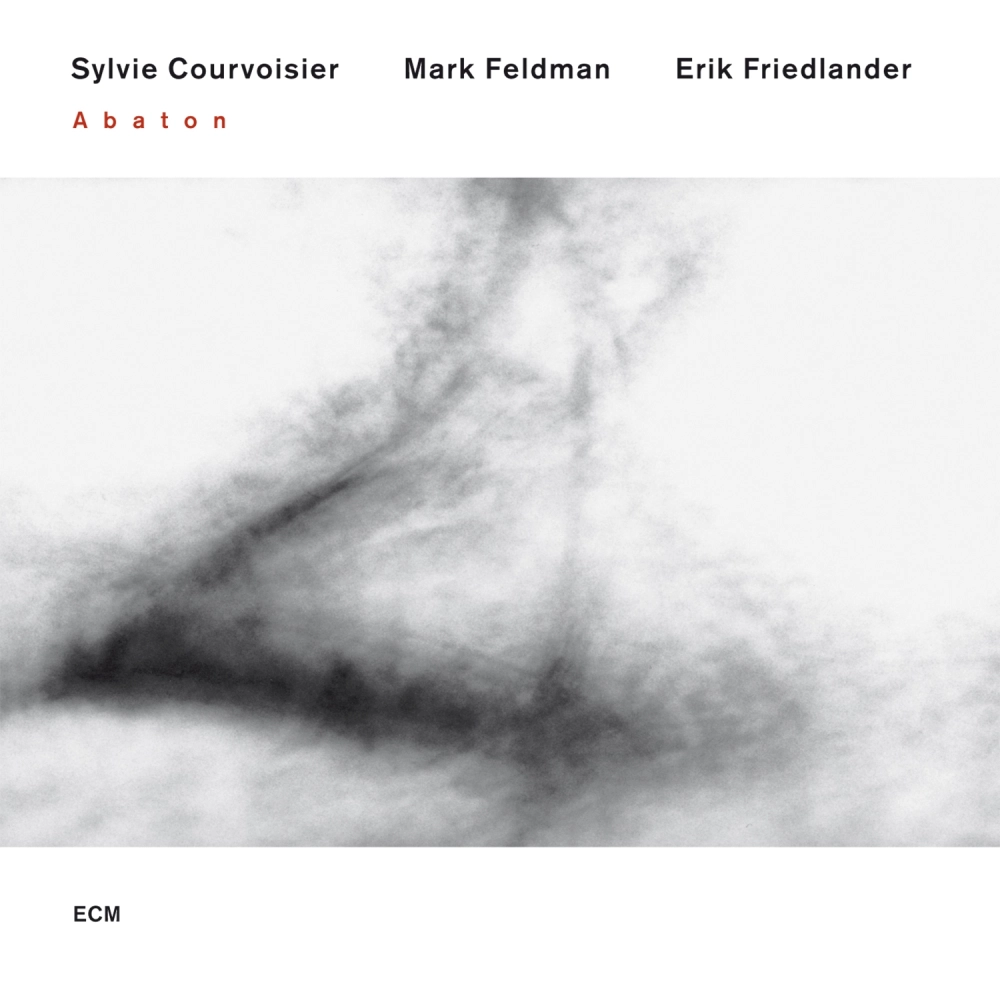ECM debut for Swiss-born and New York-based pianist Sylvie Courvoisier in a wide ranging programme of written and spontaneously-created chamber music. On CD 1 the musicians play Courvoiser’s compositions (which have been compared, by the French press, to Messiaen’s); on CD 2 they improvise together. All three musicians, however, have such a strong sense for structure that the music sings with one voice, irrespective of the modus operandi employed.
Abaton
Sylvie Courvoisier, Mark Feldman, Erik Friedlander
- CD 1
- 1Ianicum (for violin, cello and piano) (2000)
19:55 - 2Orodruin (for violin, cello and piano) (2000)
12:33 - 3Poco a poco (for violin and cello) (1999)
09:24 - 4Abaton (for violin, cello and piano) (2001)
11:29 - CD 2
- 1Icaria 1
04:04 - 2Imke's
02:08 - 3Icaria 2
03:30 - 4Clio
02:46 - 5Nova Solyma
04:42 - 6Spensonia
03:58 - 7Octavia
03:34 - 8Icaria 3
02:37 - 9Sonnante
03:37 - 10The Scar of Lotte
01:35 - 11Turoine
01:04 - 12Archaos
03:37 - 13Ava's
01:30 - 14Brobdingnag
01:29 - 15Calonack
02:55 - 16Precioso
02:46 - 17Sekel
01:26 - 18Izaura
02:51 - 19Narnia
01:50
- Maggie Macary, Forgetting and Remembering in Epic Literature
The art of creative “forgetting” is one of the methodologies employed on “Abaton”, Sylvie Courvoisier’s ECM debut. This double album, resolutely genre-defying, is divided into conceptual halves. One disc, subtitled “Four Compositions” presents music written by Courvoisier; the other features “19 Improvisations”, collective music composed on-the-spot by Courvoisier, Mark Feldman and Erik Friedlander. Abaton is also the name of the ensemble - whose concerts now similarly span Courvoisier’s compositions and freely-structured material. For their ECM recording, the trio had originally intended only to record written material, but were encouraged by Manfred Eicher also to play freely, extending the spirit of Sylvie’s compositions. The invitation was enthusiastically accepted: the language of improvisation is by no means foreign to these players…
Sylvie Courvoisier: “I’ve always been a little torn between contemporary music and jazz, or rather improvised music. It’s true that I’ve moved further and further away from ‘jazz’ in my current work, but I don’t care for labels. There will certainly be a moment in my compositions where there’s a basic line connecting to jazz. Jazz lives from improvisation; it has helped me develop this instinctive side of musical activity. When you play improvised music, instantaneous composing is what’s really going on. Every improviser is a composer, and in a way the work of composing itself is an improvisation, but of course one that’s slower, more thought over and revised…To improvise well, you have to forget everything; so to compose well you have to forget everything, too. Paradoxical, isn’t it? When I’m improvising, I like to develop it as if I were composing a piece. Some improvisations are impossible to write down and they’re magnificent.” (from an interview with Christian Steulet).
You need to load content from reCAPTCHA to submit the form. Please note that doing so will share data with third-party providers.
More InformationYou need to load content from Turnstile to submit the form. Please note that doing so will share data with third-party providers.
More InformationYou are currently viewing a placeholder content from Facebook. To access the actual content, click the button below. Please note that doing so will share data with third-party providers.
More InformationYou are currently viewing a placeholder content from Instagram. To access the actual content, click the button below. Please note that doing so will share data with third-party providers.
More InformationYou are currently viewing a placeholder content from X. To access the actual content, click the button below. Please note that doing so will share data with third-party providers.
More Information